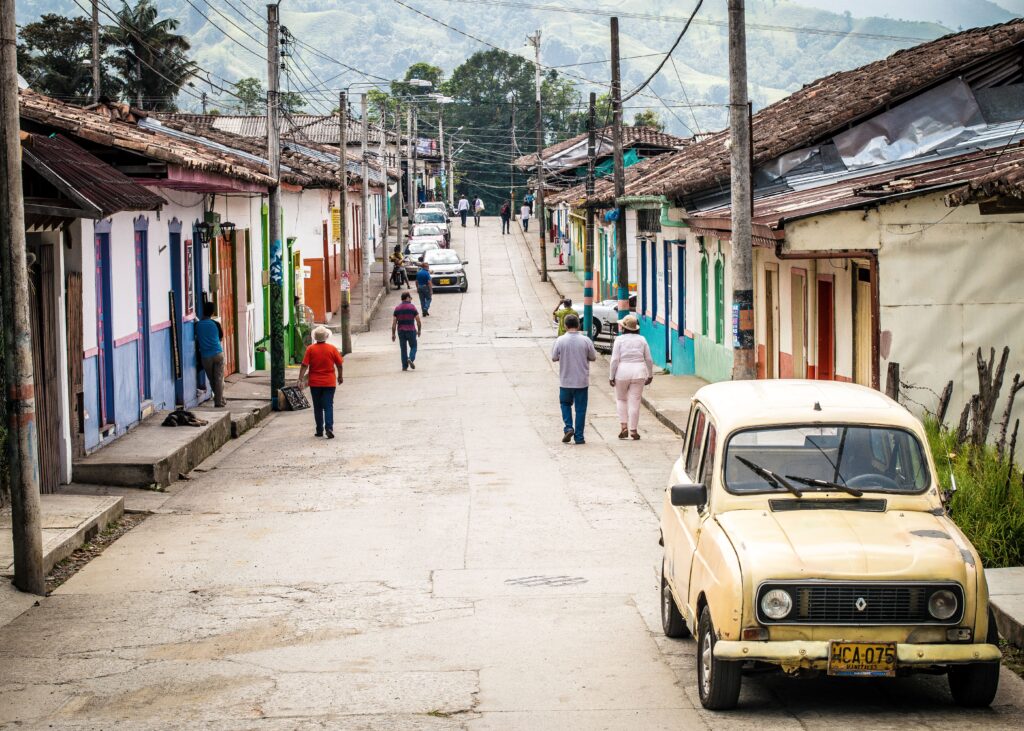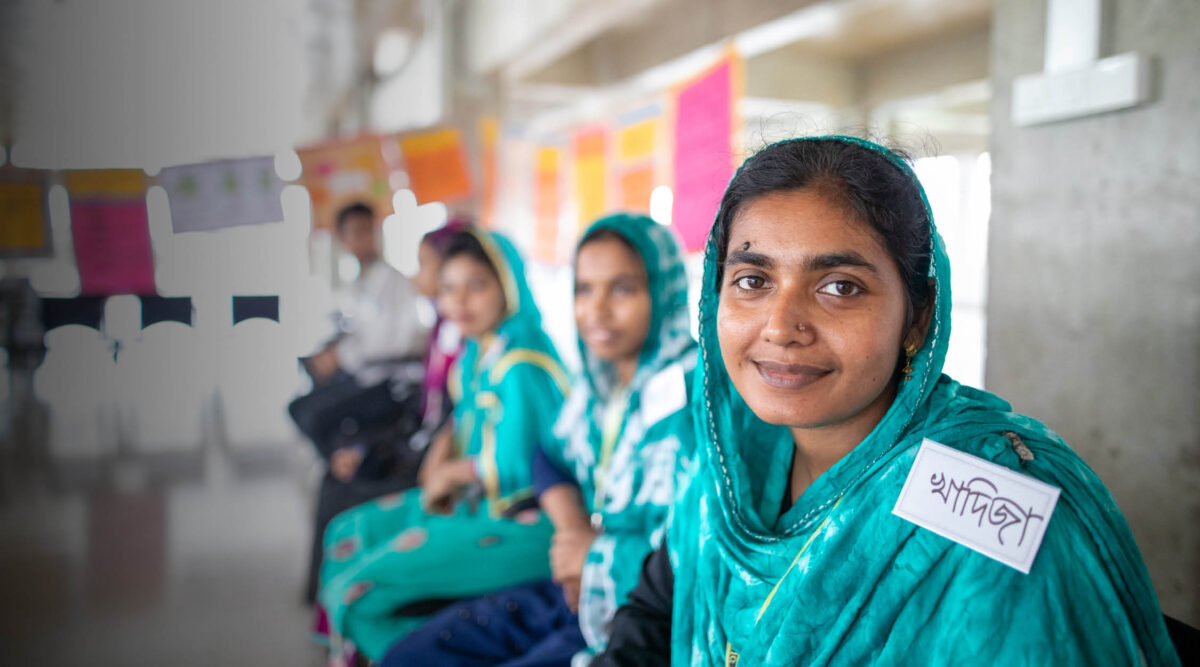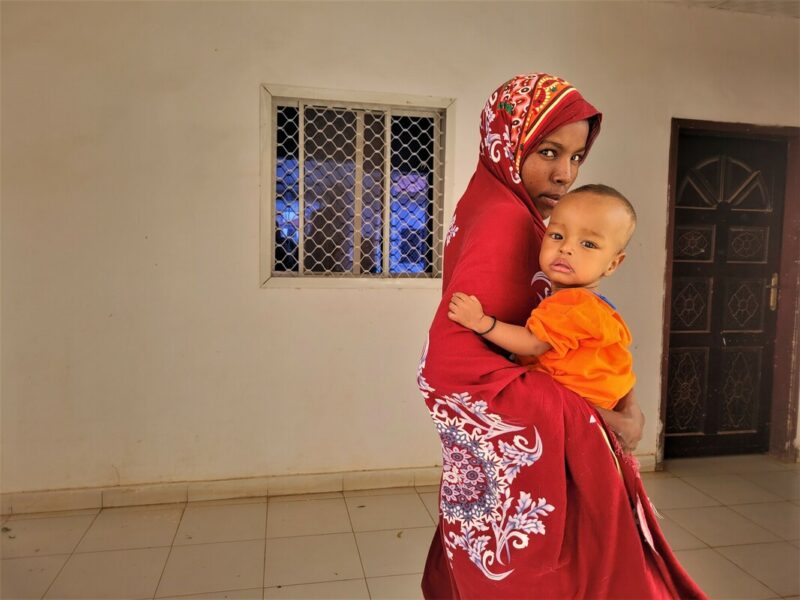Armed conflicts and violence continue to have devastating impacts on women in Columbia. Donate now.
Armed conflicts and violence continue to have devastating impacts on women in Columbia. Donate now.
Since 1954, CARE International has been operating in Latin America. In 2018, efforts were increased to meet the rising demands in the region
Among the neighbouring countries of Venezuela — Colombia has welcomed the highest influx of refugees escaping political and economic instability. Efforts focus on alleviating the stressors placed on host communities and promoting social cohesion. The number of Venezuelan nationals seeking refuge in Colombia has surpassed 1.7 million and continues to rise.
CARE is actively engaged in addressing the needs of affected communities through various initiatives. These include:
- Interventions in Sexual and Reproductive Health
- Water, Sanitation and Hygiene
- Food and Nutrition Security
- Shelter
- Cross-Cutting Cash and Voucher Assistance.
CARE Colombia works with both refugees and members of host communities, particularly people in vulnerable groups such as women, adolescents, and members of the LGBTQI+ population.
Fast Facts
Population: 51,516,562 (2021)
Life expectancy: 73 (69 male, 76 female) (2021)
Infant mortality: 11 deaths/1,000 live births (2021)
Under-5 mortality: 13 deaths/1,000 live births (2021)
Maternal mortality*: 75 deaths/100,000 live births (2020 est.)
Adult literacy rate: 96% (95% male, 96% female) (2020)
Access to improved drinking water*: 100% (urban), 87.5% (rural) (2020 est.)
Access to improved sanitation*: 99.1% (urban), 87.7% (rural)
Labour force participation rate: 63.2% (76% male, 41.5% female) (2022)
Percentage of seats held by women in national parliament: 29% (2022)
GDP per capita: $6,104 (2021)
Source: World Bank, *FBI World Factbook

Inequalities in Columbia
Over the past two decades, Colombia has secured significant achievements in advancing gender equality and empowering women. However, substantial gaps still remain.
Colombia has endorsed all existing international treaties concerning human rights and women’s rights, and it has taken notable steps towards formulating laws that advocate for gender equality and uphold the rights of women.
Colombia has one of the highest levels of poverty, income inequality and labour market informality in Latin America – ranking second among 18 countries in Latin America and the Caribbean. Compared to men, women earn 13-23% less¹ for the same work. Additionally these lack of flexible working arrangements directly affect female labour workers.
In conjunction with wage gaps, these occurrences illustrate some of the gender discriminations women experience in Colombia, where they frequently encounter restrictions in securing flexible schedules for maternity leave and other childcare-related necessities.
Climate Change in Columbia
A majority of Colombia’s population resides in the elevated Andes, where water shortages and land degradation pose significant risk to Columbia’s natural resources and quality of life. In the coastal areas, rising sea levels and floods threaten human settlements, livelihoods and economic activities.
Climate projections predict increased extreme heat, drought, higher incidence of severe storms and reduced air quality as growing threats – posing major threats to water resources, agriculture, ecosystems and infrastructure. This in turn potentially has detrimental effects to overall human health – as increased heat stress, the spread of vector-borne diseases, and compromised air and water quality become more prevalent.
Because of this, much of our approach focuses on assisting in building resilience to both humanitarian emergencies and slow-onset disasters. This involves preparing Colombia’s communities — including neighbourhoods, resources, and systems — to be more resilient in the face of the impacts of a changing climate.

Donate now
Support our ongoing work to create a more equal world.
Your donation can help end extreme poverty and give people the means to build a better future for themselves in countries like Colombia.
For those living in extreme poverty, your support brings education and training, healthcare and clean water, nutritious food, and new ways to earn an income. And in times of crisis, you help us deliver emergency relief. Please donate today.


